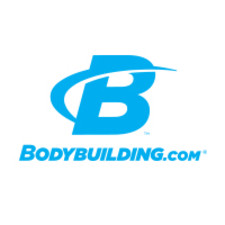Many aspiring bodybuilders are hoping that this is the year that their bodies will transform into the bodies of their dreams. Unfortunately, bodybuilders love for protein puts them at the mercy of protein manufacturers and vulnerable to protein manufacturers marketing ploys. Fledgling bodybuilders may not know as much as veteran bodybuilders but they inevitably know that protein plays a role in their future bodybuilding success. Where should this protein come from? To answer this question, we will look at the role of protein in foods versus protein supplementation.
Protein Manufacturers
Pick up any publication devoted to health and fitness and you will be inundated with articles on protein. Protein manufacturers are notorious for throwing around words like cross flow microfiltration, oligopeptides, ion exchange, protein efficiency ratio, biological value, nitrogen retention and glycomacropeptides as a way to convince potential buyers. It sure sounds convincing, especially when scores of scientific references are cited. Like most aspects of bodybuilding (and the supplement industry in general), marketing hype rather than physiological reality drives the issue of protein.
Many nutrition "experts" (people who sell supplements), state that there are distinct advantages of protein supplements: powders and amino acid tablets over whole foods. There are many different methods of determining protein quality, including biological value (BV), Protein efficiency ration (PER), Net Protein Utilization (NPU), and protein digestibility corrected amino acid score (PDCAAS).
Protein Quality
BV is one of the most commonly used and is arguably, the best measure of a protein's quality. BV is based on how much of the protein consumed is actually absorbed and utilized in the body. The higher the amount of protein (nitrogen) that is actually retained, the greater the BV. If a protein has a BV of 100, it means that all of the protein absorbed has been utilized with none lost. Whole eggs score the highest of all foods with a BV of 100, while beans have a BV of only 49.
Protein quality is certainly an important issue, but it is one that has been enormously overstated and even distorted for marketing purposes. Whey protein is truly an excellent protein with a biological value at or near 100. Many advertisements will have you believe that their whey is between 104 -157 on the BV scale. In "Advanced Nutrition and Human Metabolism", BV is defined as "a measure of nitrogen retained for growth and/or maintenance that is expressed as a percentage of nitrogen absorbed." When a protein supplement is listed as having a BV over 100, the company has intentionally manipulated the number for marketing purposes.
The companies are usually making reference to the chemical score of the protein. Chemical score is a comparison of the amino acid pattern in an ideal reference protein to a test protein and therefore the number can exceed 100.
Most bodybuilders and strength athletes already consume more than enough protein, so the importance of BV to these athletes who are already consuming enough protein has been overplayed. Even though whey has a higher BV than chicken breast, fish, or milk protein, if the total quantity of protein you consume is sufficient, then it is not likely that substituting whey for food proteins will result in any additional muscle.
For the purposes of developing muscle, the only guidelines for protein that you must follow are:
- Consume a source of complete protein with every meal
- Eat at frequent intervals approximately three hours apart
- Consume a minimum of 0.8 grams to 1 gram per pound of bodyweight
Whey Powder
Because whey protein does have a high BV, it probably offers the most benefits when you are dieting on very low calories. When your energy intake and correspondingly, protein intake is reduced, whey protein could help you get greater utilization of the smaller amount of protein that you are taking in. Whey protein also provides a way to get high quality protein without the fat. It has been suggested that whey may have other advantages besides high protein quality. These benefits include enhanced immunity, increased antioxidant activity and quick absorption.
Several studies in "Clinical and Investigative Science" by Dr. Gerard Bounous of Montreal have shown that whey protein provides anti carcinogenic properties, protection from infections, and other enhanced immune responses. Whey has also been shown to raise levels of Glutathione, an important antioxidant that can offer protection from free radical oxidative damage. While such findings are very promising, all these studies were done on mice, so it is unclear how well the results extrapolate to humans.
Protein Absorption
Another acknowledged benefit of whey protein is its fast absorption rate. Although their is not any evidence that protein supplements digest more efficiently than whole foods. They are definitely digested faster. This is most important after a training session when the rates of protein synthesis and glycogen re-synthesis are increased. Even in considering post workout nutrition, there is still little proof that a liquid protein-carb complex will actually produce better muscular growth than whole foods, as long as complete whole foods are consumed immediately after the training session and every three waking hours for a period of 24 hours thereafter.
Amino Acids
What about amino acid pills? Amino acids are simply predigested protein. Proponents of amino acid supplementation claim that because the amino acids are predigested, the body will absorb them better, leading to greater improvements in strength and muscle mass. It sounds logical, but this is a gross underestimation of the body's capacities and actually the reverse is true. The human digestive system was designed to efficiently process whole foods; it was not designed to digest pills and powders all day long.
Amino acids are absorbed more rapidly in the intestine when they are in the more complex di and tri-peptide molecules. Your body gets better use of the aminos as protein foods are broken down and the amino's are absorbed at just the right rate for your body's needs. In "Exercise Physiology; Energy Nutrition and Human Performance," authors Katch and McArdle state that "amino acid supplementation in any form has not been shown by adequate experimental design and methodology increase muscle mass or significantly improve muscular strength, power, or endurance." Furthermore, consuming predigested protein when you are seeking fat loss is not necessarily advantageous because it shortchanges you of the thermic effect of real food.
Whole foods have a major advantage over protein supplements; they stimulate the metabolism more. This is known as the "thermic effect". Protein has the highest thermic effect of any food. Including a while protein food with every meal can speed up your metabolic rate as much as 30% because of the energy necessary to digest, process, and absorb it. This means that out of 100 calories of a protein food such as chicken breast, the net amount of calories left over after processing it is 70. In this respect, the fact that protein foods digest slower than amino acid tablets is actually an advantage.
Value Of Source
A final argument against amino acid supplements is the cost. Amino acids are simply not cost effective. One popular brand of "free form and peptide bonded amino acids," contains 150 1000mg. Tablets per bottle and costs $19.95. One thousand mg. of amino acids is equal to 1 gram of protein. This would mean that the entire bottle contained 150 grams of protein. Dividing the price of the bottle by the total grams we get the price per gram, which is 13.3 cents. Now lets compare that to a chicken breast. At the local supermarket I can buy a pound of chicken breast for $2.99. According to Corinne Netzer's "Complete Book of Food Counts," there are 8.8 grams of protein in each ounce of chicken, so one pound of chicken (16 oz) has about 140 grams of protein. That would be $2.99 divided by 140 grams which would come out to 2.1 cents per gram. The amino acids cost six times more than the chicken.
The Bottom Line
The biggest advantage of protein supplements is not that they can build more muscle than chicken or egg whites or any other whole food protein, the biggest advantage is convenience. It is easier to drink a protein shake than it is to buy, prepare, and cook whole foods. Consuming small frequent meals is the optimal way to eat, regardless if your goal is muscle gain or fat loss. To keep your body constantly in positive nitrogen balance, you should consume a complete protein every three hours. For many people, eating this often is nearly impossible. That is when a high quality protein supplement is the most helpful.
Aside from the convenience, the truth about protein supplements is that they offer few advantages over protein foods. There is no scientific evidence that you cannot meet all of your protein needs for muscle growth through food. As long as you eat every three hours and you eat a complete protein such as eggs, lean meat or dairy products with every meal, it is not necessary to consume any protein supplements to get outstanding results. Whey protein does have some interesting and useful properties and supplementing with a couple of scoops a day is not a bad idea, especially if you are on a low calorie diet for fat loss. Aside from that, focus on real food and do not believe all the hype you read. Good luck on your training for the New Year.
References
- Groff, James, et al, Advanced Nutrition and Human Metabolism, West Publishing company, 1995.
- Fruhbeck, Gema. Slow and fast dietary proteins. Nature, 391: 843-844
- Boirie, Y. et al. Slow and fast dietary proteins differently modulate postprandial protein accretion. Proc National Acad Sci, 94: 14930-14935, 1997
- Lemon, Peter, Protein and Exercise: update, Medicine and Science in Sports and Exercise, Vol 19, No. 5, S179-S190, 1987
- Carraro, F., et al, Effect of exercise and recovery on muscle protein synthesis in human subjects. Amer Journal of physiology, 259: E470, 1990
- Bounous, G., et al, The immunoenhancing property of dietary whey protein concentrate. Clinical and Investigational Medicine, 11: 271-278. 1988
- Sadler, R., The benefits of dietary whey protein concentrate on the immune response and health. S Afr. J Dairy Sci, 24: No 24, 1992
- Netzer, Corinnine. The Complete Book of Food Counts. Dell Publishing, 1997
- Katch, Katch & McArdle, Exercise Physiology; Energy, Nutrition and Human Performance, Williams and Wilkins, 1996

